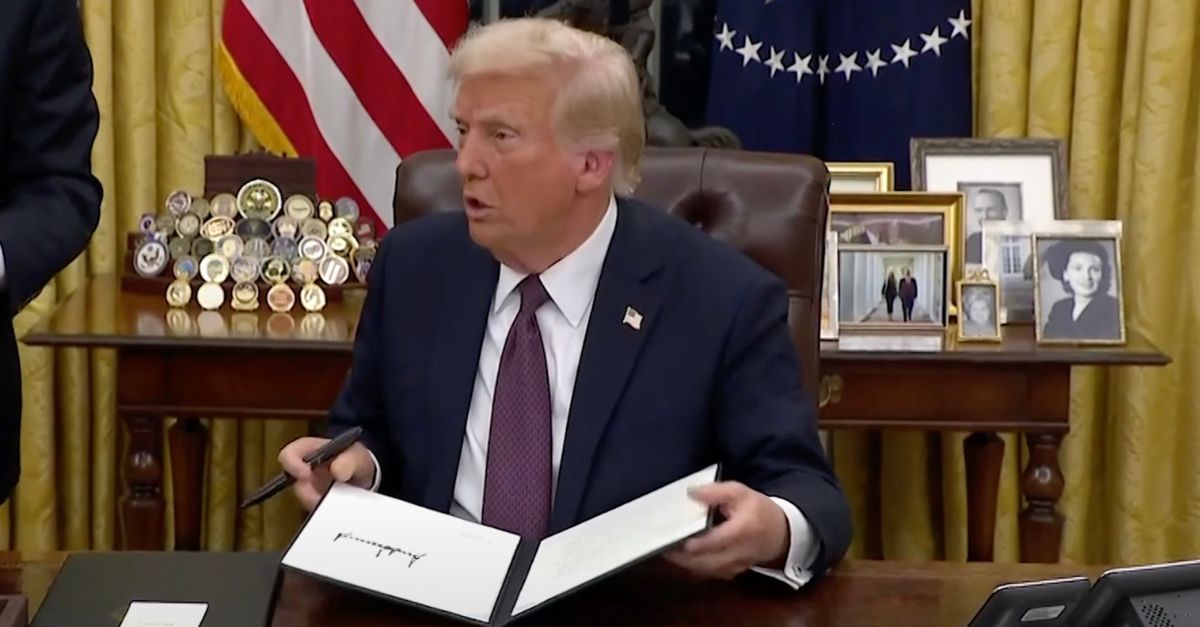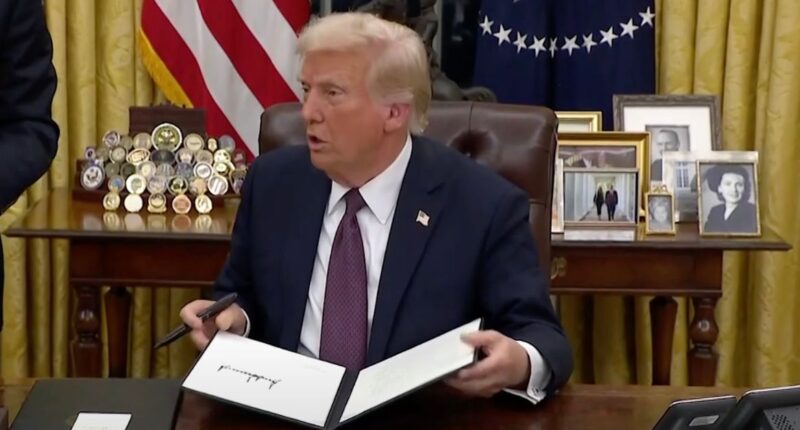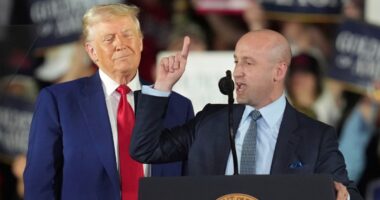
Donald Trump signing an executive order aimed at ending birthright citizenship in the U.S. (Forbes).
Shortly after taking the oath of office for his second term, President Donald Trump issued a new executive order that drew a lot of controversy. This order aims to put an end to the right of birthright citizenship for babies born in the U.S. to non-citizen parents, a right that is protected by the Constitution. As soon as the order was announced, a lawsuit was filed in an attempt to stop it from being enforced.
In line with a promise he made during his election campaign, the order instructs key government officials to stop granting citizenship to children born in the U.S. to parents who are either undocumented immigrants or in the country on a temporary legal status. This directive is to take effect 30 days after the order was signed.
From the order:
The essence of the order’s policy is that no U.S. government department or agency is to recognize or accept documents that confer U.S. citizenship to individuals in certain circumstances. These circumstances include instances where a person’s mother was illegally in the U.S. and the father was not a citizen or lawful permanent resident at the time of the person’s birth, or when the mother was lawfully present but on a temporary basis while the father was not a citizen or lawful permanent resident at the time of birth.
As he signed the order in front of a large number of reporters, Trump said of birthright citizenship, “We have to end it. We’re the only country that has it.” In fact, dozens of countries, including Mexico and Canada, allow for jus soli (“right of the soil”), the legal principle of granting citizenship based solely on an individual’s place of birth.
The American Civil Liberties Union (ACLU) and several immigrant rights organizations almost immediately responded by filing a complaint in New Hampshire federal court asserting that birthright citizenship “embodies America’s most fundamental promise” and arguing that Trump’s order violates the Fourteenth Amendment.
“The framers of the Fourteenth Amendment specifically enshrined this principle in our Constitution’s text to ensure that no one — not even the President — could deny children born in America their rightful place as citizens,” the suit states. “They did so with full knowledge and intent that this would protect the children of immigrants, including those facing discrimination and exclusion.”
The suit invokes the landmark U.S. Supreme Court case from over 125 years ago, U.S. v. Wong Kim Ark, which held that the U.S. Constitution “affirms the ancient and fundamental rule of citizenship by birth within the territory, in the allegiance and under the protection of the country, including all children here born of resident aliens.”
The complaint proclaims that in signing the order, Trump was “flouting the Constitution’s dictates, statutory commands and longstanding Supreme Court precedent.”
“Denying citizenship to U.S.-born children is not only unconstitutional — it’s also a reckless and ruthless repudiation of American values,” Anthony D. Romero, executive director of the American Civil Liberties Union, said in a statement. “Birthright citizenship is part of what makes the United States the strong and dynamic nation that it is. This order seeks to repeat one of the gravest errors in American history, by creating a permanent subclass of people born in the U.S. who are denied full rights as Americans. We will not let this attack on newborns and future generations of Americans go unchallenged. The Trump administration’s overreach is so egregious that we are confident we will ultimately prevail.”















